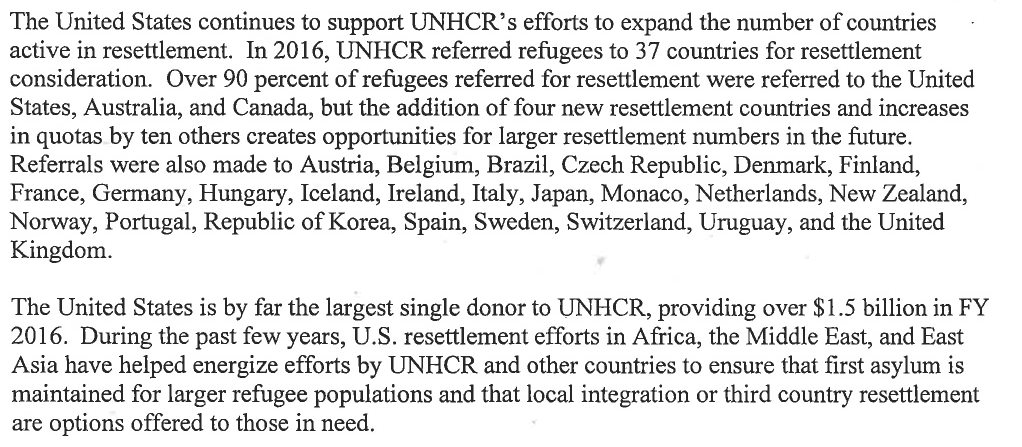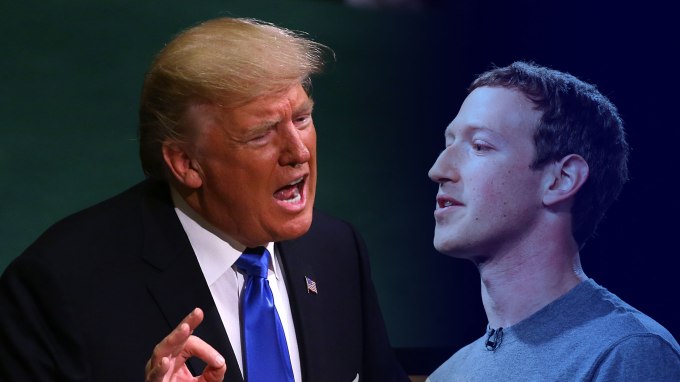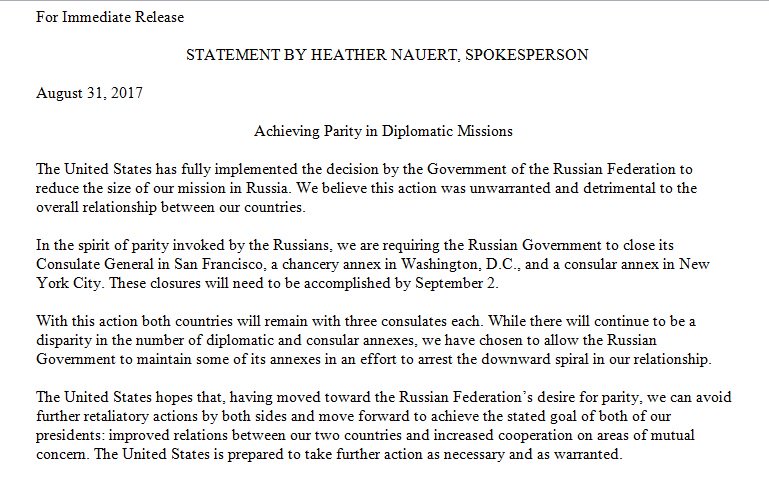Click here to see the report and numbers filed for previous years including locations.

(Reuters) – The United States will admit a maximum of 45,000 refugees during the 2018 fiscal year, President Donald Trump said in a memorandum to Secretary of State Rex Tillerson and released by the White House on Friday.
The cap, the lowest in decades, was proposed by the administration in a report to Congress on Wednesday.
Refugee advocates say the lower limit ignores growing humanitarian crises around the world that are causing people to flee their native countries in greater numbers, and represents a departure from U.S. global leadership.
The Trump administration says the lower cap is necessary so that U.S. officials can address a growing backlog of people applying for asylum inside the United States, and to do better vetting of refugees.
In its report to Congress, which was reviewed by Reuters, the administration said it may assess refugees on their “likelihood of successful assimilation and contribution to the United States.”

***
Then there is DACA:
A major deadline for recipients of the Deferred Action for Childhood Arrivals policy, or DACA, has arrived as the Trump administration continues to press forward in rolling back the Obama-era program for young undocumented immigrants.
Under the program, these immigrants, who entered the U.S. as children have been able to receive renewable two-year deferred action from deportation so that they can work or go to school.
As part of the wind-down process announced by Attorney General Jeff Sessions last month and under the leadership of the Department of Homeland Security, those eligible for DACA had until Thursday to properly file for a renewal request and other associated applications for employment authorization to the U.S. Citizenship and Immigration Services (USCIS).
After Thursday, young undocumented immigrants will not be able to apply for renewal of their DACA status.
According to DHS, eligible individuals are DACA recipients whose DACA and work authorization expire between Sept. 5, 2017, and March 5, 2018, inclusive. Of the approximately 154,200 individuals whose DACA is set to expire between Sept. 5, 2017, and March 5, 2018, just over 106,000 either have renewal requests currently pending with USCIS, or have already had USCIS adjudicate their renewal request.
Acting Secretary of DHS Elaine Duke released a memo on Wednesday urging all those still eligible to request a renewal of their DACA status as soon as possible if they have not done so already.
“I urge you to make this a priority. The renewal process is quicker than an initial request and requires minimal documentation, so take the time now to fill out and properly file your renewal request. It is imperative that USCIS physically receives your request by October 5th,” said Duke.
USCIS has also been frequently updating applicants over social media, urging followers to file their requests in order to get their case adjudicated in time.
But in light of the recent devastation in Puerto Rico, which left millions without power, food or shelter, Duke said she has directed USCIS to consider on a “case-by-case basis DACA requests received from U.S. Virgin Islands and Puerto Rico residents.”
“As of today, fewer than 20 current recipients from the U.S. Virgin Islands and Puerto Rico have yet to renew with USCIS,” she added.
Since the announcement, several lawmakers have made moves on drafting legislation to serve as a temporary fix to the DACA program as the roll back allowed for six months of adjudication, time that Congress could use to develop new immigration laws.
President Trump hosted a dinner last month with Democratic leaders Nancy Pelosi and Chuck Schumer which caused an uproar after the two Democrats issued a statement saying they had they had agreed to finalize a law “quickly” that would protect DACA recipients, and that the law would also include border security, “excluding the wall.” More here.




 Photo
Photo